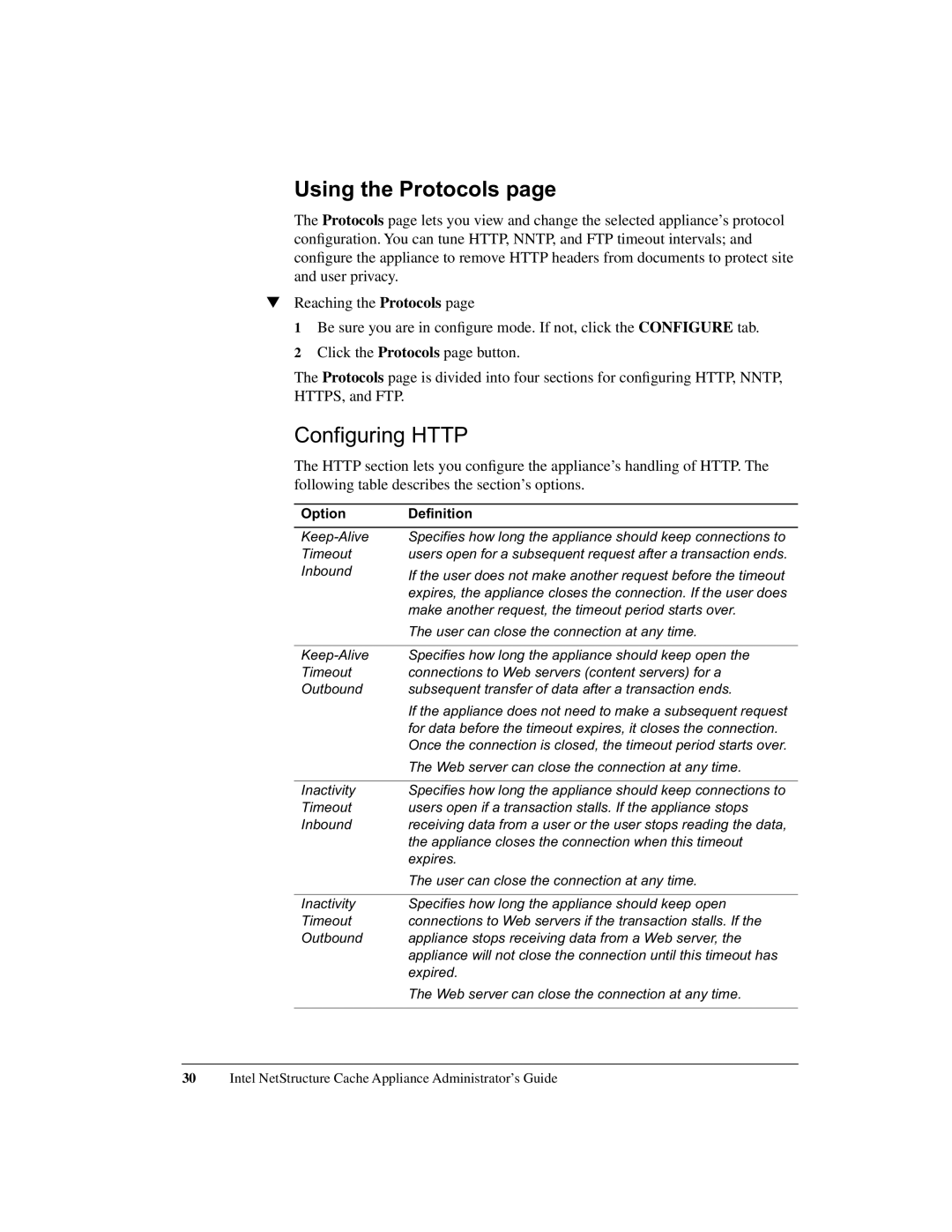
Using the Protocols page
The Protocols page lets you view and change the selected appliance’s protocol configuration. You can tune HTTP, NNTP, and FTP timeout intervals; and configure the appliance to remove HTTP headers from documents to protect site and user privacy.
▼Reaching the Protocols page
1 Be sure you are in configure mode. If not, click the CONFIGURE tab.
2 Click the Protocols page button.
The Protocols page is divided into four sections for configuring HTTP, NNTP, HTTPS, and FTP.
Configuring HTTP
The HTTP section lets you configure the appliance’s handling of HTTP. The following table describes the section’s options.
Option | Definition |
|
|
Specifies how long the appliance should keep connections to | |
Timeout | users open for a subsequent request after a transaction ends. |
Inbound | If the user does not make another request before the timeout |
| |
| expires, the appliance closes the connection. If the user does |
| make another request, the timeout period starts over. |
| The user can close the connection at any time. |
|
|
Specifies how long the appliance should keep open the | |
Timeout | connections to Web servers (content servers) for a |
Outbound | subsequent transfer of data after a transaction ends. |
| If the appliance does not need to make a subsequent request |
| for data before the timeout expires, it closes the connection. |
| Once the connection is closed, the timeout period starts over. |
| The Web server can close the connection at any time. |
|
|
Inactivity | Specifies how long the appliance should keep connections to |
Timeout | users open if a transaction stalls. If the appliance stops |
Inbound | receiving data from a user or the user stops reading the data, |
| the appliance closes the connection when this timeout |
| expires. |
| The user can close the connection at any time. |
|
|
Inactivity | Specifies how long the appliance should keep open |
Timeout | connections to Web servers if the transaction stalls. If the |
Outbound | appliance stops receiving data from a Web server, the |
| appliance will not close the connection until this timeout has |
| expired. |
| The Web server can close the connection at any time. |
|
|
30Intel NetStructure Cache Appliance Administrator’s Guide
